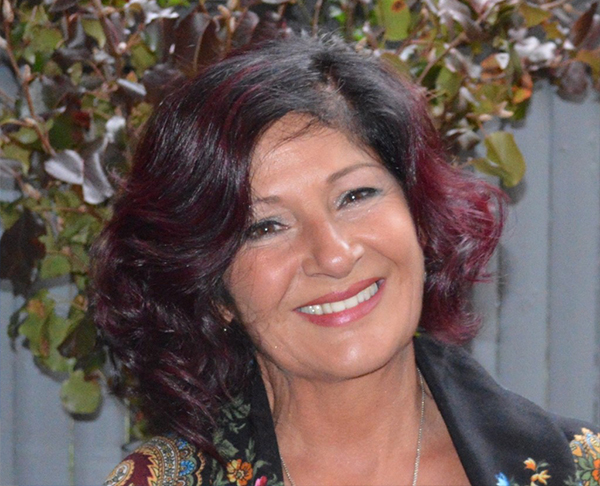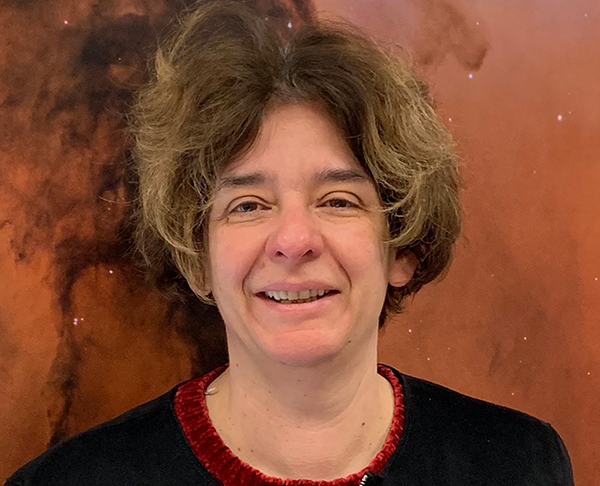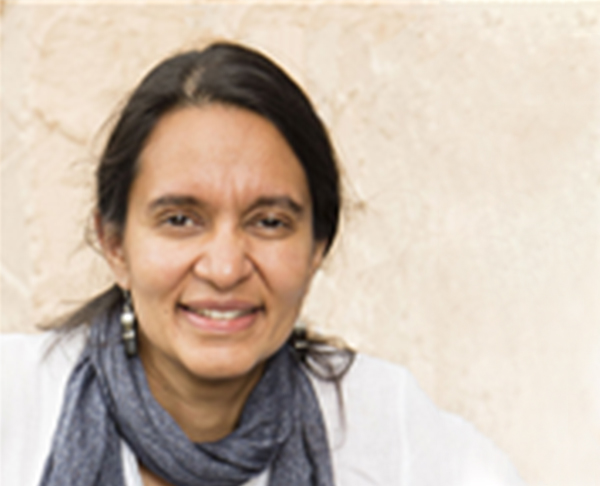UC San Diego Announces Margaret Burbidge Visiting Professorship
Heising-Simons Foundation helps boost participation of women scientists as part of new initiative in the Division of Physical Sciences
Published Date
By:
- Cynthia Dillon
Share This:
Article Content
With support from the Heising-Simons Foundation, the Division of Physical Sciences at UC San Diego has established the Margaret Burbidge Visiting Professorship. It’s part of an effort to bring eminent female physicists to the university for collaborative research interactions within the Department of Physics. Three visiting professors from Columbia University, ESPCI Paris and the University of Illinois at Urbana-Champaign will fill the inaugural role beginning in the fall.
“The professorship is intended to enable outstanding women from other universities to spend time at UC San Diego, pursuing new research ideas and serving as mentors to the university’s faculty and students,” explained Division of Physical Sciences Dean Steven Boggs.
The new Burbidge professors include:

Elena Aprile. Photo courtesy of Elena Aprile
Elena Aprile, a professor of physics at Columbia University in New York City. She received her undergraduate degree in physics in Naples, Italy, before earning her PhD at the University of Geneva, Switzerland. She started her research on noble liquid imaging detectors under the mentorship of Professor Carlo Rubbia, first as a student at CERN and later as postdoctoral scholar at Harvard University. At Columbia she pioneered the development of a Compton telescope for gamma-ray astrophysics based on a liquid xenon time projection chamber. She later turned her attention to the dark matter question proposing the XENON project for its direct detection using liquid xenon as target and detector medium. She founded the XENON Dark Matter Collaboration in 2002 and has served as its scientific spokesperson ever since; her international team includes more than 170 scientists and students representing 24 nationalities and 22 institutions. Aprile has been principal investigator on more than 20 research grants worth nearly $30 million over the last three decades and holds a patent, jointly with her graduate student Danli Chen, for a vacuum ultraviolet light source. Aprile is the recipient of the 2019 AAS Lancelot Berkeley Prize, chair of the 2019 APS Forum of International Physics, a member of the Fermilab Program Advisory Committee, spokesperson of the XENON Collaboration and an American Physical Society (APS) Fellow.

Annie Colin. Photo courtesy of UC Santa Barbara Kavli Institute for Theoretical Physics
Annie Colin, a professor with the École Supérieure de Physiques et de Chimie Industrielle, ESPCI Paris and an expert on soft matter. She was a CNRS Research Fellow in Bordeaux who worked on soft matter (foams and emulsions) before becoming a Professor of Chemistry at the University of Bordeaux, where she supervised a joint team between Solvay, CNRS and the university. Her current research interests are in the areas of rheology, materials and energy harvesting, and microfluidics. She has been invited to more than 40 conferences, and she serves as the deputy director of Institut Pierre Gilles de Gennes for microfluidics and dean of International Relations ESPCI.

Smitha Vishveshwara. Photo courtesy of Smitha Vishveshwara
Smitha Vishveshwara, a condensed matter theorist in the Department of Physics at the University of Illinois at Urbana-Champaign. She earned her bachelors degree in physics at Cornell University in 1996 and was guided by David Mermin in research on geometric phases. She received her PhD in 2002 from the Universitity of California, Santa Barbara, studying strongly correlated systems, fractionalization and critical dynamics under the guidance of Matthew Fisher. At Illinois, initially as a postdoctoral researcher and then, from 2005 on as faculty, her research expanded to a broader range of topics, including topological states of matter, quantum Hall systems and anyons, cold atomic systems aboard the International Space Station and far-from-equilibrium quantum dynamics. Recognitions of her work include a Simons Fellowship and the National Science Foundation’s American Competitiveness and Innovations award. In recent years, she not only employs condensed matter concepts to black hole phenomena and proteins in interdiscipliary work, she also synergizes her passions for physics, the arts and public engagement. These efforts include her project-based course, “Where the Arts Meets Physics,” and a co-created performance piece, “Quantum Voyages,” which was featured this year as a public event at the American Physical Society March meeting.
The division’s new visiting professorship program, named for Margaret Burbidge, recognizes the spirit in which the famed astrophysicist has been a science leader. Acknowledged as one of the prominent scientists of her generation, Burbidge’s work remains fundamental to astronomy. She earned renown for her findings on quasars and for her stellar-spectra research that served as the foundation of the famed B2FH theory, which hypothesized the creation of the heavy elements through stellar fusion. She also was the first woman to serve as director of the Royal Greenwich Observatory and as president of the American Astronomical Society. Her many awards include The Albert Einstein World Award of Science (1988), the President's National Medal of Science (1983) and the Bruce Medal (1982), of which she was the first female recipient. At UC San Diego, Burbidge was the first director of the Center for Astrophysics and Space Sciences (CASS), where she helped develop some of the Hubble Space Telescope’s original instruments.
The three UC San Diego visiting professors will begin their residence on campus during the 2019 – 2020 academic year. They will remain on campus for 12 consecutive weeks, and each will receive stipends to cover their costs of living, as well as expenses to support events with student groups and junior faculty.
To date, the division has received more than $2.1 million in grants from the Heising-Simons Foundation. Its support also contributes to the Campaign for UC San Diego, the university’s comprehensive $2 billion fundraising effort to empower the next generation of innovators to blaze a new path toward revolutionary ideas, unexpected answers, life-saving discoveries and planet-changing impact.
UC San Diego Physical Sciences is listed among the top 50 schools in the world for degrees in the physical sciences. Its graduate programs in physics, chemistry and biochemistry, and math rank among the top 20 in the nation.
Share This:
You May Also Like
Stay in the Know
Keep up with all the latest from UC San Diego. Subscribe to the newsletter today.



